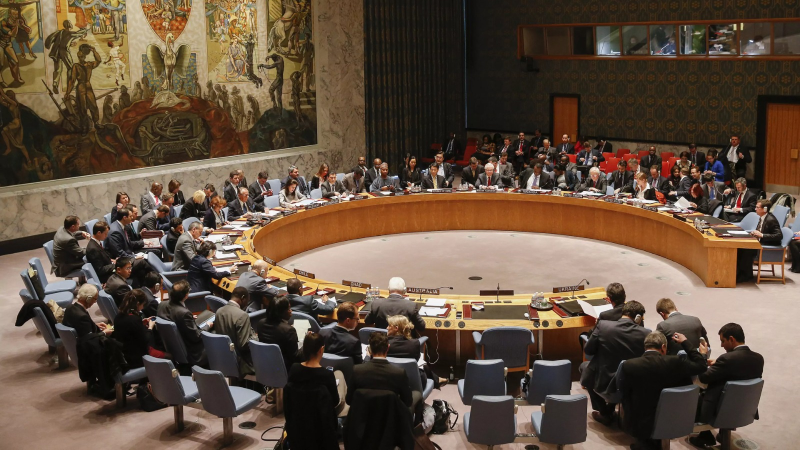
The Russia-Ukraine Paradigm Shift: The New Role of Nuclear Weapons in the 21st Century
By Alex Thomas, alumnus of The Fletcher School
As our world enters a renewed era of great power competition among the United States, Russia, and China, Russia’s war against Ukraine will forever stand as a disquieting watershed moment within the context of the global nuclear order. An event emblematic of increasing geopolitical competition amid the rise of China and the reemergence of Russia, the annexation of Crimea and subsequent military conflict in the Donbas in 2014 prompted widespread international outcry and a cascade of economic sanctions against Russia by the West. All hopes for Russia peacefully integrating with the West following the Cold War were effectively shattered.
Furthermore, the conflict continued to escalate over the following decade despite the global backlash and ramifications placed upon Russia in 2014. It created an unprecedented challenge to international security, stability, and nuclear norms, each of which was markedly exacerbated following Russia’s full-scale invasion of Ukraine on February 24, 2022. Since the second phase of the war, the conflict has challenged virtually every international norm and structure that has been painstakingly built since the end of the Cold War, especially those that revolve around nuclear weapons threats, proliferation, and use.
One major reason for this challenge is that Ukraine inherited the world’s third-largest nuclear weapons arsenal in the world following the collapse of the Soviet Union in 1991. However, Ukraine voluntarily relinquished it to Russia in exchange for financial compensation and security assurances from the United States, Russia, and the United Kingdom by 1994. As a counterfactual, it is estimated that if Ukraine had chosen to hold onto its nuclear weapons, it would have gained full operational control over them within 12 to 18 months. Nonetheless, Ukraine chose to relinquish them anyway. The invasion of Ukraine by Russia more than two decades later has thus brought an important question into the limelight: what happens to would-be nuclear proliferators after they abandon their aspirations for nuclear weapons?
The cases of Iraq, Libya, Syria, and now Ukraine provide four uncomfortable answers to this question, each of which has severely undermined the international security environment with regard to nuclear weapons proliferation: non-nuclear-weapon states (NNWS) are beginning to see nuclear weapons as essential for their survival, saber-rattling is effective at preventing external intervention when nuclear weapons states start conflicts with NNWS, the effectiveness of U.S. sanctions as a deterring non-proliferation tool has declined, the value of the Treaty on the Non-Proliferation of Nuclear Weapons (NPT) has diminished, and the future of arms control is highly uncertain.
Most concerningly, when NNWS evaluate the lessons to be learned from the Russia-Ukraine war, they may perceive nuclear arms as the best shield against external aggression. Nuclear weapon states, conversely, may look to the West’s response to Russia’s saber-rattling as demonstrative of the increased value in brandishing their nuclear arsenals as a form of strategic compellence. Compounding each of these challenges is the unfortunate reality that the United States and Russia, moving forward, have few well-functioning diplomatic channels to cooperate anymore.
The lessons drawn from the war that I discuss in my capstone merely scratch the surface of the ways in which the war questions the efficacy and stability of long-established norms and agreements that have governed our international system for decades. Alarmingly, Russia’s 2023 Foreign Policy Concept presents a vision for the world that shifts toward an unstable multipolar international system that threatens to erode the very foundations of international peace and security. As Russia pivots its focus toward the Global South and reinforces narratives of neocolonialism and critiques of liberalism, it strives to redefine the world order and erase the Western-dominated paradigm of the 21st century.
In Russia’s uncertain vision for the world’s future, brought on by the war in Ukraine, cooperation on existential threats like climate change and pandemics will undoubtedly become difficult. With the multipolarity that Russia is now advocating through its war in Ukraine, achieving consensus on global issues will require a transformation in diplomatic practices that the United States is likely ill-suited to adapt to. If the United States is to work toward this challenging, daunting, and all-important goal of global peace and security, it cannot do so alone. Throughout the Cold War and post-Cold War periods, cooperation on key issues between the United States and Russia was always important. Restoring and reinforcing this relationship will require finding inclusive ways to bring Russia once again to the negotiating table with the West.
The Russia-Ukraine war has therefore not only disrupted the global nuclear order as we know it but also has heralded a new paradigm shift in international relations. Through its unlawful and unjust invasion of Ukraine, Russia has forced the world to a crossroads where the choices made by perpetrators of rampant war crimes and human rights abuses will determine the future trajectory of global peace, cooperation, and security. Successfully balancing power, values, and strategic national interests in this new environment will prove to be the challenge of our generation.
